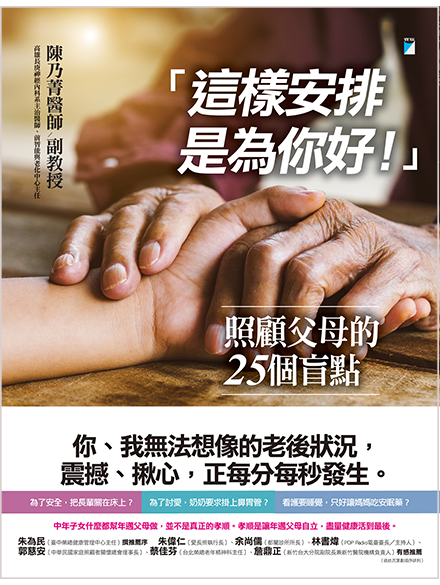Providing care for elderly parents is an important familial value in Asian societies. But sometimes the best intentions of family members are met with resistance. Written by a specialist in geriatric medicine, this book points out the common pitfalls of adult children caring for aging parents and suggests best practices to follow.
With the rapid aging of society, an increasing number of adult children are facing the challenges of caring for aging relatives. We’ve all heard the horror stories: the elderly uncle with dementia strapped to his bed “for his own protection”, the struggle to convince one’s father it’s time to start wearing adult diapers, or the over-protective children who won’t even allow their mother to take a short walk unescorted.
In the eyes of elder care specialist Dr. Chen Nai-Ching, a common mistake children make when caring for aging parents is to see them as children. From a place of genuine love, they tell their parents, “It’s for your own good”, but they rarely take the time to consider things from the parents’ perspectives. What is needed is a healthy dose of mutual respect and open communication, because solutions to physiological issues often must take into account psychological factors. Adult children must learn to recognize when letting go of control is the best way to build a mutually satisfying life together.
In this book, readers will learn about 25 common pitfalls that children encounter when caring for their elderly parents. Each pitfall corresponds to a particular problem adult children encounter in elder care. Case studies help illustrate the origin, mechanics, and resolution of the problem. Bullet points help summarize main concepts at the end of each chapter to make it easier to begin applying these principles in daily life and thus support dependent parents to live their happiest, most independent twilight years.
